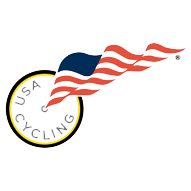Pushing Yourself through a Hard Effort
Your heart is pumping, your legs are burning, and you’re dripping enough sweat to put out a small forest fire you are suffering. When you’ve taken care of the elements that can contribute to pain – hydration, nutrition, fitness, training what’s left?
Your mindset plays a huge part in your ability to tolerate pain. If you want to be a competitive cyclist, you have to know how to go deep into the pain cave. A cyclist’s ability to suffer often determines who steps onto the podium and who is standing off to the side. Whether you’re climbing a 10% grade, bridging a gap, or sprinting for the finish, there will be times when you need to dig deep and go harder than you ever thought possible – so how do you it?
I’ll tell you what racing’s about. It’s about suffering. It’s about pain – racing hurts. Andrew Juskaitis
Controlling Your Expectations
Your brain tells your body how much effort to exert during exercise. Your body has a protective mechanism in place called anticipatory regulation. Basically, your brain will tell your body to back off in order to keep you from harming yourself, regardless of whether or not you are physically capable of doing the task. Expectations play an important role in your ability to tolerate pain.
For example, if you are on a climb and you get to what you thought was the top of the climb, but the climb keeps going – the effort you will need is more than what you expected and your brain automatically sends a message to your body to slow down. One of the reasons cyclists ride the course before a race is so they will know exactly what to expect and have a good idea of the amount of effort that will be involved. If you expect that the pain you will experience during your competition will be more than you can handle, then it will be. You need to mentally prepare for the physical pain you will endure. At what times during the race are you likely to feel extreme discomfort due to the physical effort you are putting out? Knowing ahead of time when you will be suffering means there won’t be any surprises. You need to go into your race knowing that there are going to be some tough spots, but that you can handle it.
Controlling Your Focus
When you are riding along in the pack at a moderate pace, the level of effort being exerted
still allows you to look around, see who’s up front, figure out which teams are looking strong, make sure you’re hydrating, etc. At high levels of physical intensity, it’s virtually impossible to distract yourself from the pain you are feeling.
However, you can control your focus so that it doesn’t intensify the pain you feel. Your focus has to be related to the immediate task you are doing. When you are climbing you can count your pedal strokes. Some people count continually until they reach the top of the climb and others will pick a number to count to and keep repeating that cycle (i.e. 1, 2, 3, 4, 5, 6, 7, 8. 1, 2, 3, 4, 5, 6, 7, 8.) Another technique is to focus on good form. Focus on creating a smooth pedal stroke or relaxing your shoulders. The key is to know ahead of time where you want your focus to be so that it immediately goes there.
Controlling Your Thoughts
Have you ever noticed that as soon as you start to think about how much pain you are in, the pain gets even worse? Controlling the messages you send to yourself is the key to sustaining intense effort. Your perception of the pain you are experiencing has an impact on your ability to tolerate it. Instead of focusing on feeling miserable, connect the feeling of pain to getting stronger. Connect the feeling of pain to accomplishing your goals. Associate the pain with something positive versus something negative. Fighting against the pain only makes it worse. Learn to accept the pain and appreciate it as part of the experience. Here are some powerful thoughts to try out when you are deep in the pain cave and want to run out!
- “Everybody is suffering.” Repeat this phrase to yourself. You are not the only one out there in pain. Your competitors might have their game face on, but they are hurting just as much as you are.
- “The pain will be over soon. I can do anything for ____ minutes.” Knowing that there is a finite end to the suffering you are currently enduring can help you hold out just a little longer.
- “Suffering gets me closer to my goal.” This is a powerful message to send to yourself. You are basically changing your perception of the physical feeling of pain from something negative to something positive. Connect the feeling of pain to getting stronger and accomplishing your goals.
- Power Cue Words: Sometimes you need a power word – something you go to when you need to make that extra push. Everyone’s word might be different, but it is usually one word that you can repeat over and over to yourself that makes you feel strong and ready to put out a big effort. Repeating words like go, attack, power, smooth, will influence how you feel and how you perform. Practice using your power cue word the next time you have intervals during a training ride. Try out a couple words and see what works best for you. If you really want to see the impact your thoughts have on your performance, during one of your intervals try repeating the word slow or I hate climbing over and over and you will quickly be convinced of the power your thoughts have on your performance. Practice controlling your thoughts so that they work for you instead of against you!
You can say that climbers suffer the same as the other riders, but they suffer in a different way. You feel the pain, but you’re glad to be there. Richard Virenque
Relaxing Your Body
If you have a negative reaction to the feeling of physical pain that comes with an intense effort, your muscles will tense in response. An increase in muscular tension will burn more energy, which slows you down and can burn you out before the end of your race. An increase in muscular tension can also increase the intensity of pain that you feel. The best thing you can do for your performance is relax, relax, relax! Make sure you aren’t adding any extra physical tension as you compete. Cyclists often contract muscles in their upper body that aren’t necessary for optimal performance. Too much muscular tension will interfere with the execution of a motor skill. Too much tension = poor performance.
The greatest tools you have for helping your body relax are your brain and your breathing. Use your brain to tell your body to relax. Practice this during your next training ride. Every mile or so, remind yourself to relax your hands and relax your face. Usually the next thing that happens is that you drop your shoulders (another area that holds too much muscle tension). Try it right now and see what happens! You are basically sending yourself a message to chill out. The next piece is to control your breathing. Your brain and your muscles require oxygen for optimal functioning. Taking full and complete breaths helps relax the body and calm the mind. Shallow breathing delivers less air per breath than full and complete breaths, which causes an imbalance between the oxygen and carbon dioxide in your body. Taking full and complete breaths can help slow the heart rate down and delivers adequate oxygen to your brain and muscles. Your muscles won’t work without oxygen and you can increase the amount of oxygen that gets to your muscles by increasing the quality of your breathing.
If the ability to suffer plays a part in being a competitive cyclist, then it makes sense to work on your ability to suffer. Without the physical conditioning, working on the mental skills involved with the psychology of suffering won’t do much for you. Mental skills don’t make up for a lack of physical ability. You need to prepare for putting out big efforts both physically and mentally. The more prepared you are, the more confident you will be. If you feel like your tolerance for suffering pales in comparison to your competitors, mental preparation has to be added into your training plan. Prepare ahead of time for what is to come and take control of your performance.














